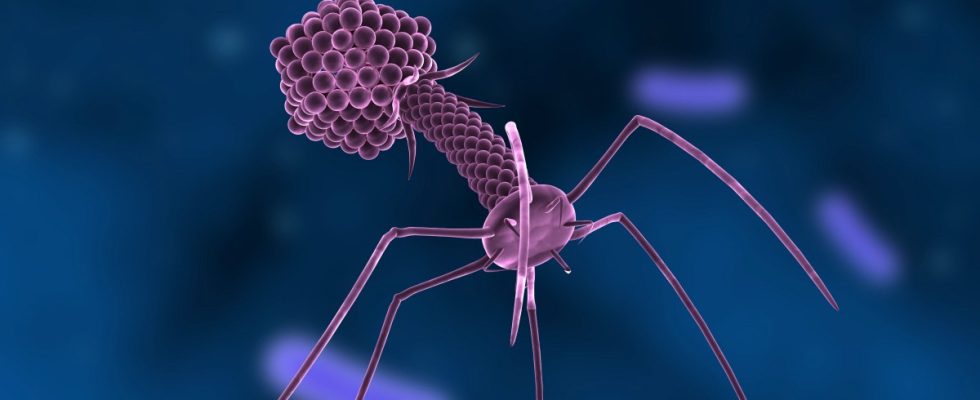An alternative to antibiotics is urgently sought worldwide – and theoretically there is one. Only in practical terms do legal framework conditions hinder the development of a promising drug: the phage. Although basic research on phages is booming, large-scale clinical studies are lacking. A report by the Office for Technology Assessment at the German Bundestag (TAB) now suggests why this is the case: According to the experts, it is mainly due to the current legal framework at European level, which is too inflexible for phage therapy.
Bacteriophages, or phages for short, are viruses that can specifically attack and destroy bacteria. They were already being researched and used 100 years ago as a therapeutic option to combat bacterial infections, i.e. as an alternative to antibiotics. Since then, phages have been used as medicines in some countries of the former Soviet Union and in Poland. In western industrialized countries, they were hardly used after antibiotics became available in the 1940s.
Phages could be a great opportunity for medicine, as more and more antibiotics are losing their effectiveness due to resistance. With the help of phages, not only could antibiotic-resistant pathogens be combated, but individual antibiotic resistances could be broken down again. Because phages are able to change the external structure of a bacterium. This can make the bacterium susceptible to certain antibiotics that were previously ineffective. In this way, pathogens could be made accessible again for antibiotic therapy, explains Julia Frunzke from Forschungszentrum Jülich.
The legal framework does not match the properties of phages
Approved phage preparations do not yet exist in the EU and Germany. But what’s the problem? The TAB identifies several factors. Research on phages requires appropriately equipped laboratories as well as a lot of time and money for development. It is expensive to produce highly pure preparations that meet the required standards and it is difficult to predict the pharmacological behavior of the phages. In addition, there are no specific quality criteria at European level that are essential for approval.
Phage therapy must be precisely tailored to the bacteria causing an infection. Since the bacteria can have different properties, a cocktail of different phages is usually required, which must be readily available. To be effective, these must go directly to the site of infection. What is possible with wound infections becomes difficult with infections of the internal organs, says Gerd Fätkenheuer from the Cologne University Hospital.
But in the long term, legal framework conditions in particular must become more flexible, writes the TAB in its report. Since resistance to phages is also developing, phage preparations would have to be exchanged and modified. That would require a new permit in each case. However, this involves an effort that is not economically viable. Also, each individually tailored phage therapy would have to be tested and approved individually.
A future possibility could be the establishment of a biobank in which phages that have previously been approved as active substances against certain pathogens can be compiled. However, such a pre-approval of various active substances is also not provided for in the current regulations.
Although phage preparations are not approved, they can still be used under exceptional conditions and in individual cases – in Germany, for example, as an individual attempt at healing when conventional drugs are no longer effective. In these cases, the preparations usually come from abroad or were made by the treating specialist staff themselves.
With material from the Science Media Center

